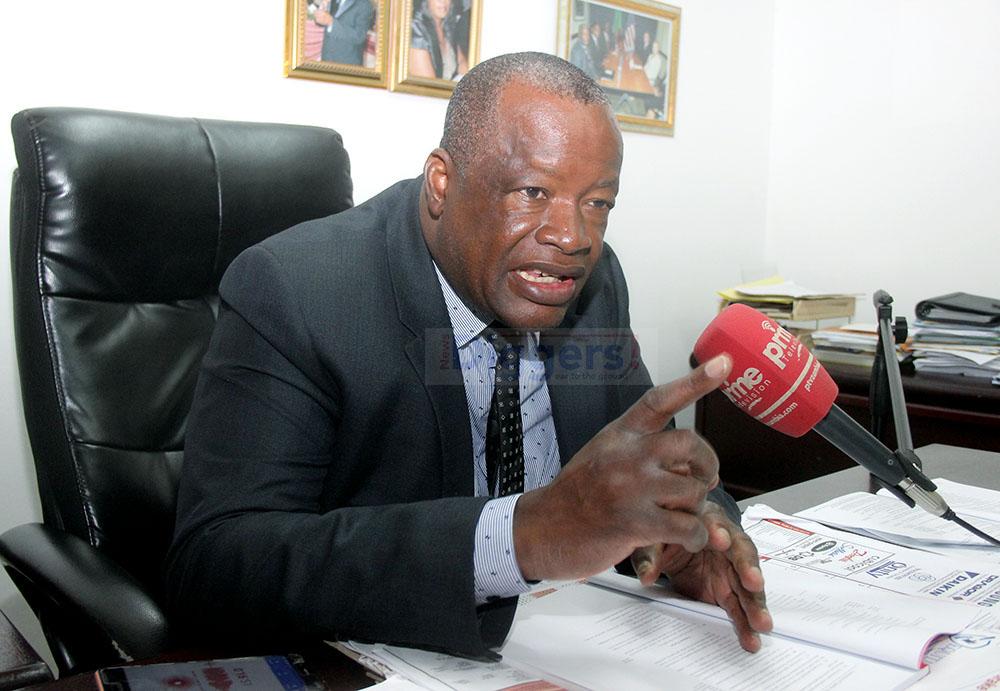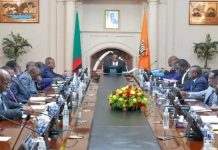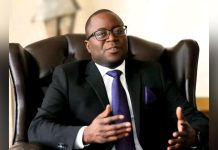Africa-Press – Zambia. The bedrock of our democracy is the rule of law, and that means we have to have an Independent Judiciary, Judges who can make decisions independent of the political winds blowing winds that are blowing.” ~ Caroline Kennedy, American Attorney and Diplomat
(Continued from Friday)
During the 2023 Ceremonial Opening of the Lusaka High Court Criminal Session, His Lordship the Chief Justice Dr. Mumba Malila, S.C. expressed his concerns to Judges and, by extension, to Judicial Officers about delays in the judicial process. In his own words, he said:
“The pace of disposal of many of these matters has admittedly been slow, which has
provoked the impatience of the people whose resources were allegedly stolen. They are agitated by the tardy prosecution process. They want results quickly…”
The Chief Justice is concerned with meeting timelines, rather than the requirements of court processes which may delay the work of his financial crimes court. On the other hand, the State, who is the complainant on behalf of the people, wants to see verdicts in the financial crimes’ courts delivered speedily and prays for convictions.
Fair enough, but here is the worrying aspect. Is His Lordship the Chief Justice saying to the courts that they must now act as demanded by the public who are agitated by the tardy prosecution process? The Chief Justice says the people want results quickly. So the public and the courts should never mind what the legal process requires, and the Judiciary shall do as the people demand, not as the processes require?
It has always been my believe that the Judiciary serve justice under law, and not the people as such. Do we, as a public, assume that when a criminal matter is presented before the Judiciary as “The People v. Citizen Z,” then the people must always win because the Judiciary declared itself as having been employed by the people? Do we forget that we the people are also being claimed by the political classes as being their employer?
Are we to assume, then, that there is some collusion between the Judiciary and the politicians in their joint claim of being employed by the people? In those circumstances, can Citizen Z expect justice from a Judiciary which is expected by the public to owe its loyalty not to the constitution and the law, but to a fickle public?
The old maxim that “the wheels of justice grind slowly” is being seen as an impediment to swift convictions regardless of the facts or the law and should therefore be cast out of the path to swift convictions as demanded by the people, who according to the Chief Justice, are the victims whose money has been stolen.
But justice comes about by establishing the facts as required by the law, and this is established through the judicial process with its many rules which ensure that justice is not only done, but is seen to be done.
With the clock ticking so fast, it is expected and will become inevitable that our Chief Justice Malila may come under intense pressure to show and deliver results to the executive, which represents the people whose resources were allegedly stolen. The expectations are that the Judiciary ought to assist the executive by securing convictions and commensurate sentences. His Lordship, the Chief Justice
Dr. Malila himself thus states: “… no matter how long it takes, the courts are expected at the appropriate moment to deliver their verdicts. I expect that if these individuals are found guilty on the evidence, the courts will apply the full rigours of the law.”
But Chief Justice Malila does not end there. Speaking more like a member of the executive arm whose duty it is investigate corruption and bring suspects to book, he goes on to warn current leaders serving in government today as well as the civil servants, of what awaits them:
“I am also expectant that the criminal conduct, if any, of those currently mismanaging in any way the financial affairs of the State, stealing in various forms from the public purse or flouting procedures and causing financial loss or property – in short those engaged in criminal conduct, must know that they may be continuously undergoing surveillance and scrutiny by our law enforcement agencies and will be brought to justice as soon as prima facie evidence of criminality is established.”
As I loudly read out these remarks to my colleagues while we were taking a warm beer at Kawama, one colleague lamented, “these are hardly the words of a neutral judge who expects the State, in its prosecution of alleged offenders, to present convincing evidence on the basis of which, during trial by an unbiased court, the court will reach its verdict.”
Another one added, “this is fighting talk by an apparently neutral referee who, by his words, has already come to the conclusion that those brought before the courts, are guilty as charged unless they, the accused, can convince the court that they are innocent.”
Going by the words and tone of the Chief Justice’s speech quoted above, the author believes the courts may be disinclined to treat the accused as being innocent unless they prove themselves innocent. Whether the accused can expect a fair trial, is a moot point.
More as a reminder to the carefully identified magistrates and judges, and in a tone usually known among those who instigate and prosecute corruption cases, Chief Justice Malila told the gathering at the High Court:
“I must state from the outset that this corruption war will not be won overnight but with what the French call volonté politique (political will) and the support and participation of all persons of goodwill, who are in this case the victims of the vice in one way or another, it will be won someday.”
Volonté politique from the lips of the Chief Justice! Mon Dieu! Surely not! The Judiciary does not, should not need political will to perform its noble role of delivering justice to all – prosecution or defence or public.
This hymn of political will, should best be sung exclusively by the Executive and not the Judiciary, let alone the Chief Justice himself, one of the judges in the people’s last line of defence of our rights, the chief officer of our country’s justice system, to whom aggrieved appellants, especially accused persons, will one day stand before him.
With his own words, our esteemed Chief Justice may be revealing his prejudices ahead of his adjudication, and through his speeches to his fellow adjudicators, he foists his opinions and his prejudices upon the entire Judiciary.
For More News And Analysis About Zambia Follow Africa-Press







